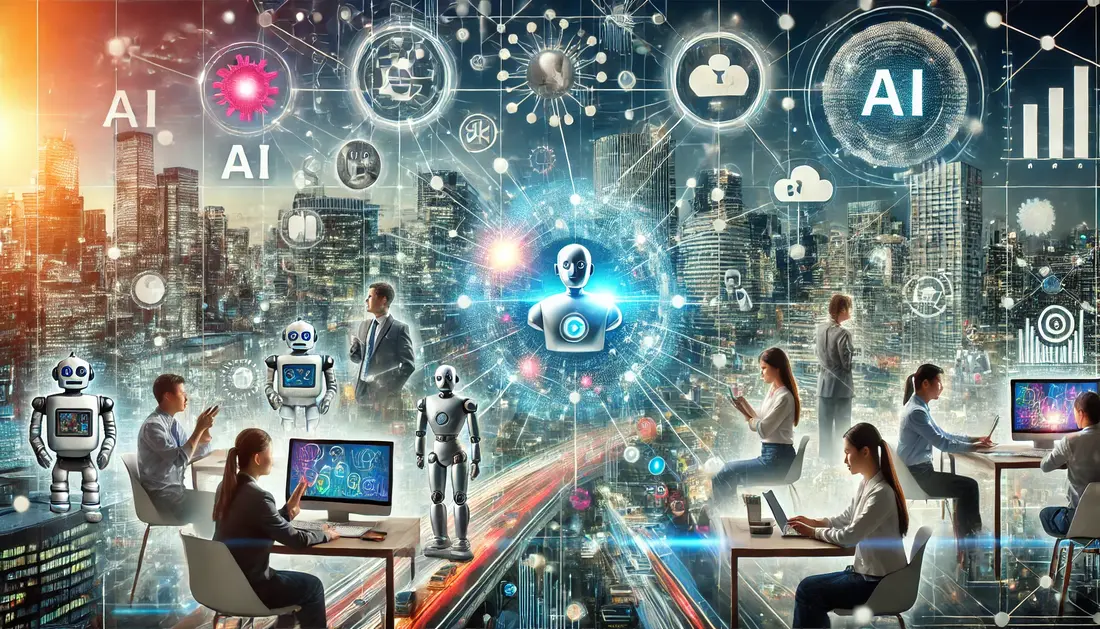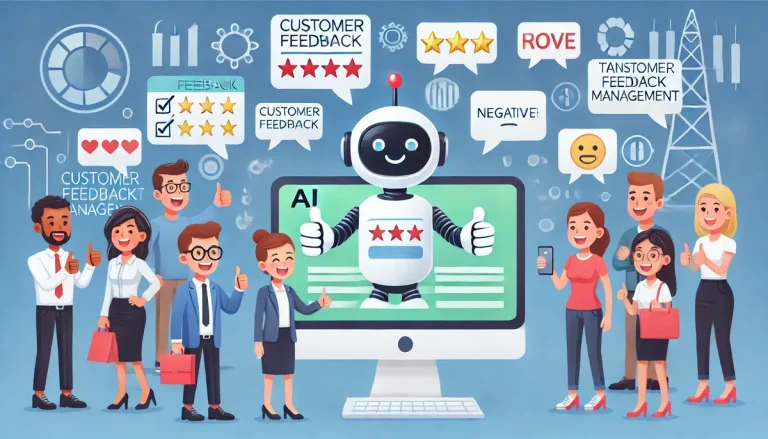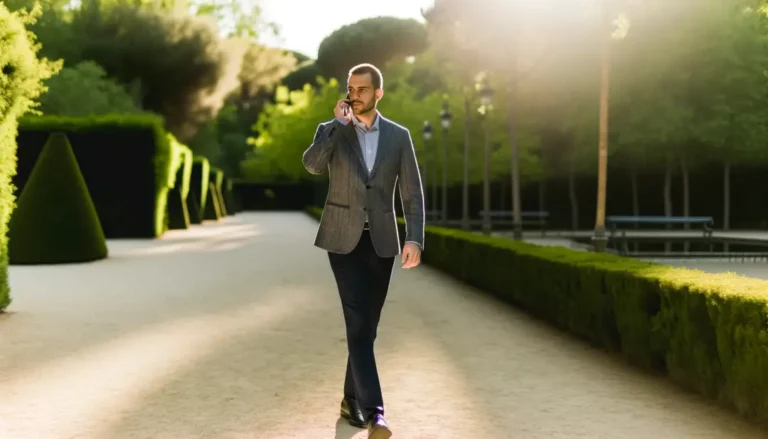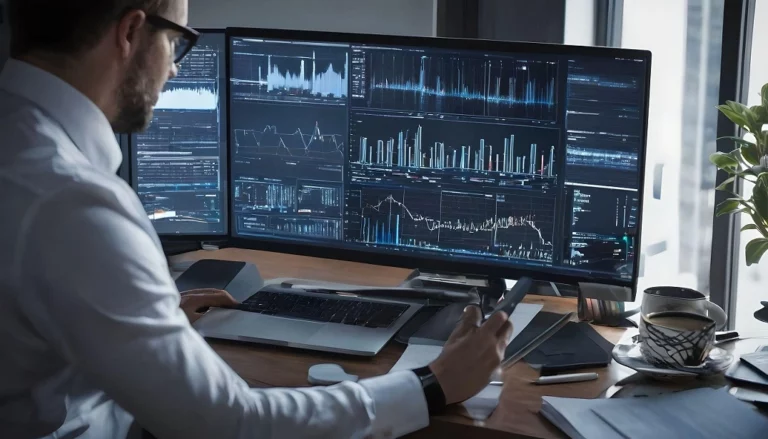AI is no longer a conversation about what might happen; it’s a reality. It defines how we live and work right now. In 2025, AI is not a trend. It is a fundamental shift in technology. Individuals and businesses face a clear choice. They must embrace AI. This choice determines future success. Ignoring AI means falling behind.
Leading tech minds agree on the critical importance of AI. Visionaries like Bill Gates, Elon Musk, and Sundar Pichai speak openly. Their consensus is clear. Everyone must understand and integrate AI. This post explores their insights. It shows why AI is essential for everyone today. It provides a roadmap for navigating this evolving landscape.
Leading Voices: Why AI is Essential Now
Prominent figures in technology frequently discuss the profound effects of AI. Their insights underscore the present importance of AI.
Bill Gates’s AI Vision
Bill Gates has consistently highlighted the transformative power of AI. He believes AI will reshape daily life. Gates predicts a significant change in work patterns. He envisions a two- to three-day workweek within the next decade. AI will handle many tasks currently performed by humans. This automation includes manufacturing, logistics, and food production.
Elon Musk’s Complex View
Elon Musk, a vocal proponent and critic of AI, shares a complex view. He acknowledges AI’s immense potential for good. AI could bring about a future of abundance. It might provide goods and services for everyone. Musk even foresees a “universal high income.” This comes from the vast economic output of AI-powered humanoid robots.
However, Musk also issues strong warnings. He stresses the need for careful regulation. AI, if mismanaged, poses existential risks to humanity. He emphasizes the importance of controlling the development of AI. This ensures it remains a beneficial tool. Musk also warns about AI’s increasing demand for electricity. This could lead to a global energy crisis.
Global Leaders on AI
Other top leaders also champion AI adoption.
- Sundar Pichai (Google CEO) views AI as a technology more transformative than electricity or fire. He emphasizes AI’s potential to reshape industries. He also highlights its impact on education and healthcare. Google focuses heavily on AI-driven products. Pichai’s 2025 strategy centers on scaling AI-powered solutions.
- Mark Zuckerberg (Meta CEO) focuses on AI’s role in creating immersive digital experiences. He sees AI as central to the metaverse. He also views it as key to enhancing social connection. Zuckerberg expects Meta AI to become a leading AI assistant. He predicts it will reach over one billion people.
- Jeff Bezos (Amazon Founder) emphasizes AI’s use in optimizing operations. He highlights its power to enhance customer experience. Amazon uses AI extensively in its logistics and recommendation systems. Bezos Expeditions, his personal investment firm, actively invests in AI data solutions.
- Jack Ma (Alibaba Co-founder) predicts AI will fundamentally change business. He believes it will empower small businesses globally. Ma stresses continuous learning and adaptation in the AI era. He advocates for AI to serve humanity. AI should not replace or dominate humans.
These leaders share a common message. AI is not just a technological advancement. It is a new operating system for the world.
Why Everyone Must Embrace AI in 2025
The year 2025 marks a pivotal point for AI integration. Its capabilities are no longer theoretical. They are practical and accessible.
For Individuals: Personal Growth and New Skills
Artificial intelligence (AI) offers significant opportunities for personal growth. Learning about AI tools boosts skills. It enhances problem-solving abilities. AI literacy is becoming crucial for career progression. Prompt engineering, for example, helps individuals extract better results from AI.
Adapting to new AI-driven workflows can significantly boost productivity. Bill Gates notes that two-thirds of all U.S. jobs will require education beyond high school by 2025. This highlights the need for continuous upskilling.
For Businesses: Efficiency, Decisions, and Growth
AI provides a competitive edge. It streamlines operations. AI enhances decision-making processes. It improves customer service. Businesses use AI for data analysis, personalized marketing, and automation. This leads to higher revenue per employee. Industries highly exposed to AI show significantly faster productivity growth.
PwC’s 2025 Global AI Jobs Barometer indicates a 56% wage premium for workers with AI skills. Companies are increasingly relying on AI to navigate economic challenges.
Navigating the AI Landscape
Fears of job displacement persist. However, experts generally agree: AI will transform jobs. It will not eliminate human roles entirely.
Job Evolution, Not Replacement
AI automates repetitive tasks. This frees human workers for more complex and creative tasks. New job roles are emerging. These include AI trainers, ethicists, and prompt engineers.
The PwC 2025 Global AI Jobs Barometer confirms that job numbers are growing. This includes roles considered most automatable. AI makes workers more valuable. It allows them to command higher wage premiums. The World Economic Forum predicts that 97 million new roles may emerge by 2025 due to the impact of AI. This is a net positive impact.
Essential Skills for the AI Era
Success in an AI-powered world requires new skills.
- AI Literacy: Understand AI capabilities and limitations.
- Data Literacy: Interpret data. Spot biases. Communicate findings.
- Prompt Engineering: Craft clear instructions for AI tools.
- Critical Thinking: Evaluate AI outputs. Make independent decisions.
- Creativity: Innovate beyond what AI can generate.
- Adaptability: Continuously learn. Adjust to new technologies.
- Ethical AI Awareness: Understand bias. Implement strategies for fair AI.
- Human-AI Collaboration: Treat AI as a powerful assistant.
Ethical Considerations in AI Adoption
AI development must consider ethical implications. Bias in AI models is a serious concern. Developers and users must prioritize fairness. They must ensure accountability. Responsible AI ensures technology serves humanity. Issues like deepfakes and the spread of misinformation are growing concerns. Data privacy and security remain critical. Transparency in AI systems is essential.
Conclusion
AI is not a distant concept. It is a present reality. It shapes how we live and work. The consensus among tech leaders is clear. Embrace AI now. Individuals and businesses must learn, adapt, and integrate AI tools. This prepares them for a future driven by intelligence.
Bigly Sales offers tools and solutions. These can help your business navigate this AI-driven future. Explore how AI can empower your operations. Unlock new levels of efficiency and growth.
FAQs About AI
What does Bill Gates have to say about AI?
Bill Gates predicts AI will significantly shorten the workweek. He suggests a two or three-day workweek within a decade. AI will handle many current jobs. He also sees AI greatly improving healthcare and access.
What is the book Bill Gates recommends for AI?
Bill Gates recommends “The Coming Wave” by Mustafa Suleyman. This book explores the future impacts and challenges of artificial intelligence.
What is Bill Gates’ prediction for the AI workweek?
Bill Gates predicts AI advancements could lead to a two or three-day workweek. Machines will automate most tasks. This frees human time.
What Bill Gates warns is that only three jobs will survive the advent of AI.
Bill Gates suggests some jobs are more resilient to AI. These include roles in coding, energy, and biology. He believes human creativity and complex problem-solving will remain vital.
What is Elon Musk saying about AI?
Elon Musk warns about the potential dangers of AI. He stresses the need for strict regulation. He also predicts AI could create immense economic potential. He envisions a future of abundance for all. Musk also notes a potential global energy crisis due to AI’s power demands.
Can AI replace humans?
Experts generally agree that AI will not fully replace humans. AI will automate many tasks. It will transform job roles. It will create new opportunities. Human skills, such as creativity, critical thinking, and emotional intelligence, remain irreplaceable. AI is more likely to augment human capabilities.








